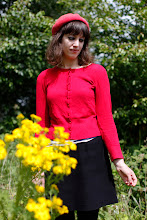 The annual Manchester Food and Drink festival started yesterday, and Manchester is full of events celebrating the city’s culinary culture. One of the most unusual will be held in Heaton Park this weekend, where the public can get a close-up look at the art of beekeeping. I visited last year and spoke to some of the keepers (an interview I never got round to using).
The annual Manchester Food and Drink festival started yesterday, and Manchester is full of events celebrating the city’s culinary culture. One of the most unusual will be held in Heaton Park this weekend, where the public can get a close-up look at the art of beekeeping. I visited last year and spoke to some of the keepers (an interview I never got round to using).
The Manchester and District Beekeepers Assocation, which formed in 1895, has been housed in Heaton Park in Prestwich for over twenty years. The society was awarded £500,000 by Manchester City Council and five years ago moved into the park’s handsome eighteenth century Dower House, a small building with imposing pillars and a gravel drive in the grounds of the stately home Heaton Hall.
 Secretary Maggie Bohme said: “We’re very lucky. We have the best facilities in the country. We have a thriving association and get members travelling from as far away as Bolton and Bury. Some people come down in their suits after work. For many people, it’s a restful and stress-relieving activity.”
Secretary Maggie Bohme said: “We’re very lucky. We have the best facilities in the country. We have a thriving association and get members travelling from as far away as Bolton and Bury. Some people come down in their suits after work. For many people, it’s a restful and stress-relieving activity.”
She continued: “Beekeeping is more popular than ever, although we lost 50 per cent of our colonies in a year, through a virus and other factors. Most keepers have lost a third of their colonies but don’t really know why. It could be to do with the weather or some kind of mite.”
The association has petitioned the government for more research into the declining number of bees. Bohme explained: “Bees contribute £165million per year to the economy, yet the government only spends £200,000 on research into bee health.”
Amidst buzzing (bees fan their wings to maintain a 35 degree temperature to draw water from the nectar) and the sweet smell of honey, visitors can watch bees through magnifying glasses and observation hives, as well as see besuited keepers at work in the outdoors apiary where the bees are kept.
Bob Marshall, an instructor on the society‘s Monday night beekeeping course, said: “We work the hives in small teams. Visitors can get a snapshot of what it’s like on any particular day.”
He explained: “We keep the bees in artificial swarms as it gives them more
 room. The Queen has a brood box with a landing board and above are supers where the nectar is stored. We use different things like Himalayan Balsam. They love that. ”
room. The Queen has a brood box with a landing board and above are supers where the nectar is stored. We use different things like Himalayan Balsam. They love that. ”We were told the difference between different types of bees: “Drones spend their time doing nothing in the drone congregation area. At two weeks old the virgin bee mates with 12 to 15 drones then never goes out of the hive again. The drones die after they have mated with the queen. The Queen is then fed, groomed and does nothing but lays 1000 to 2000 eggs per day, which hatch after about three weeks.”

All this, plus navigation and flying, is done in the dark, with the help of the wonderfully named waggle dance, a figure of 8 dance that tells other workers how far away a forage is, and which direction it is in.
The honey is made in the extraction room, where wax is separated using a coarse filter. Visitors are advised: “Don’t buy supermarket honey as they blend it with honey from different beekeeping counties.”
Buying local also has another benefit: “If you’re an asthma sufferer, buy honey from within a three-five mile radius as it builds up your resistance.”
As well as honey, visitors can purchase hand cream, furniture polish, propolis and candles. Different types of honey can be sampled on delicious honey crunch biscuits; volunteers make specialist honey such as borage, mixed floral honey and heather honey - which is the most expensive and described as ‘heavy’.
The society also dispels some myths about bees and clear up some common misconceptions, for example clarifying that bumblebees are ‘rounder and hairier’ than honeybees. They also give all important advice on how to avoid nasty stings: “If a bee lands on you, it’s curious - it thinks you’re serious or something. Stand absolutely still - close your eyes and mouth." A bee sting is barbed like a fish-hook with a venom sack on the end.
 They also make sure there’s no chance of confusing bees with certain other flying creatures: “A wasp will sting you for the sake of stinging you because they’re nasty carnivores. They don’t leave stings.”
They also make sure there’s no chance of confusing bees with certain other flying creatures: “A wasp will sting you for the sake of stinging you because they’re nasty carnivores. They don’t leave stings.”www.mdbka.com
Manchester Food and Drink Festival is on until October 12
www.foodanddrinkfestival.com
The Dower House will be open for the Food and Drink festival from 2-4pm on Sunday October 4.
It is open to the public on Sundays from 12-4pm.
Manchester and District Beekeepers Association
The Dower House
Heaton Park
Bury Old Road
Prestwich
M25 2SW
www.heatonpark.org.uk




1 comment:
really fab article. i'll write about my visit. mega excited!
Post a Comment